NSYSU, Rukai Cultural Museum in Wutai Township, Wutai Elementary School, and National Museum of Marine Biology and Aquarium jointly organize exhibition on Rukai Fish and River Fishing
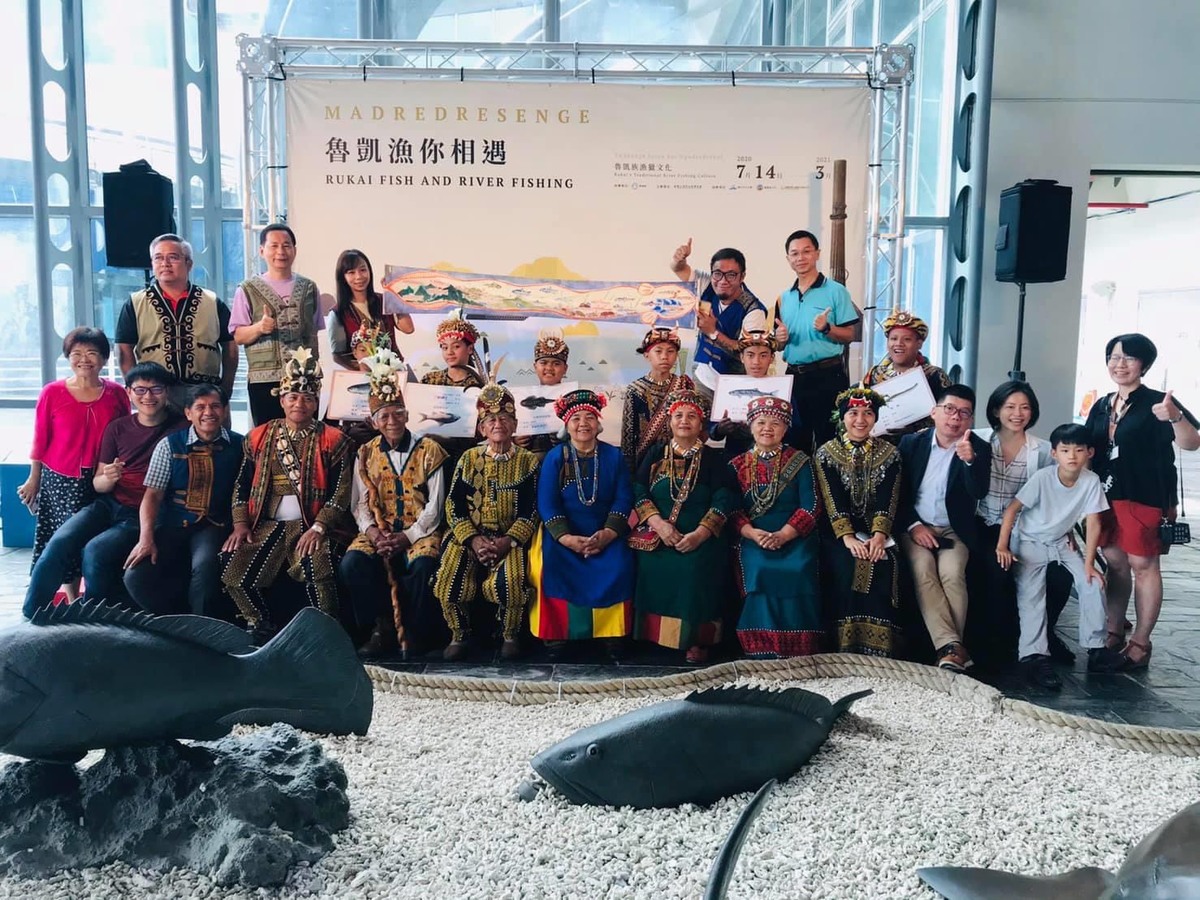
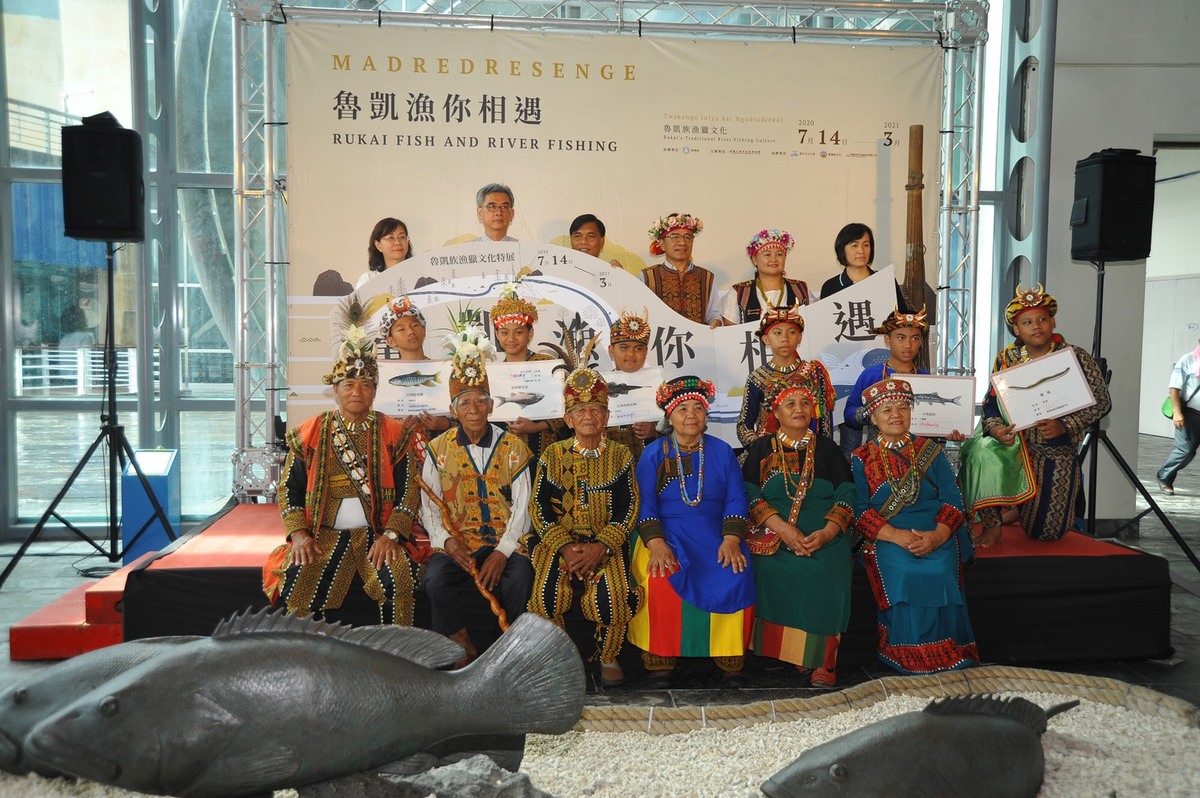
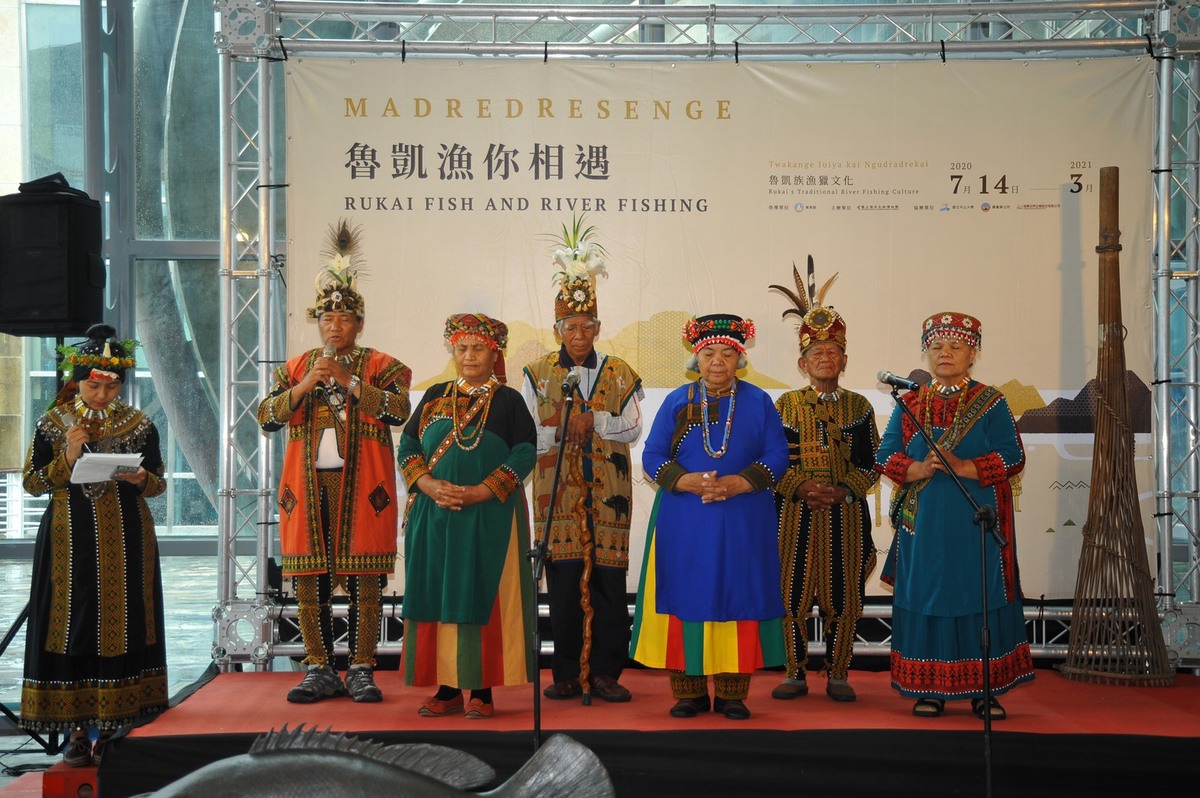
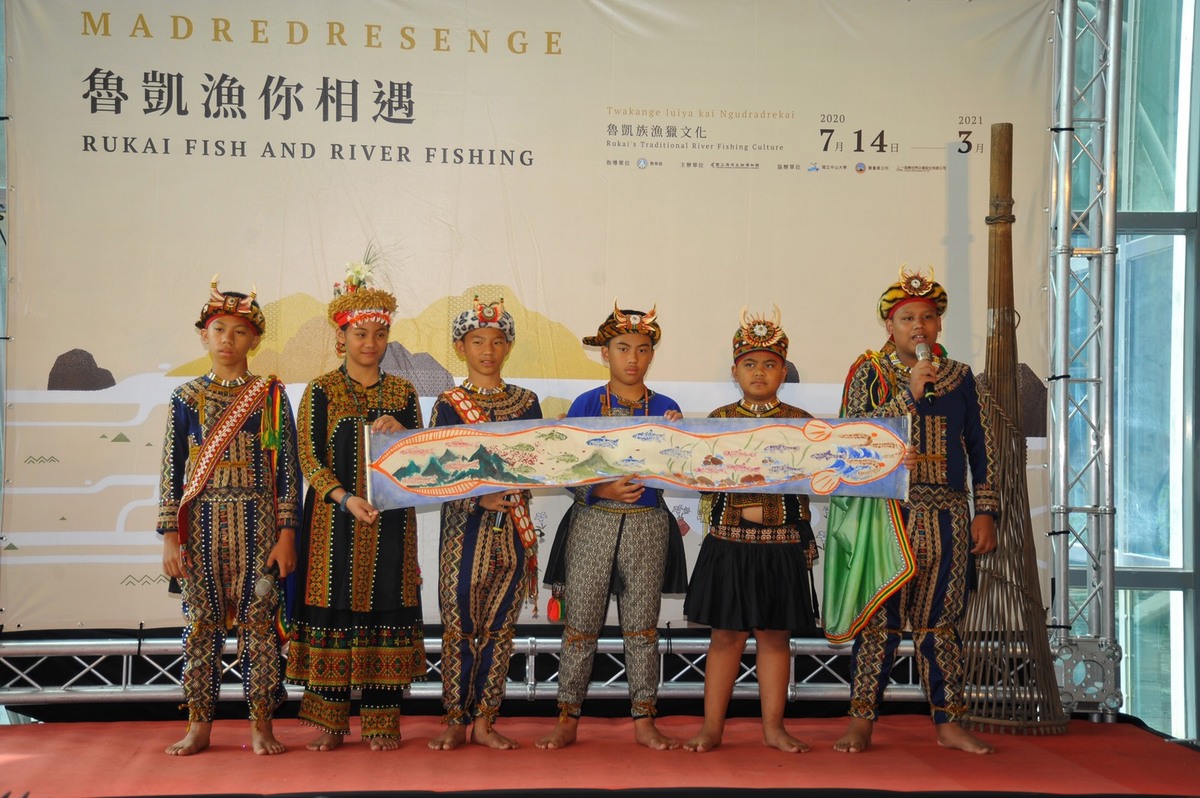
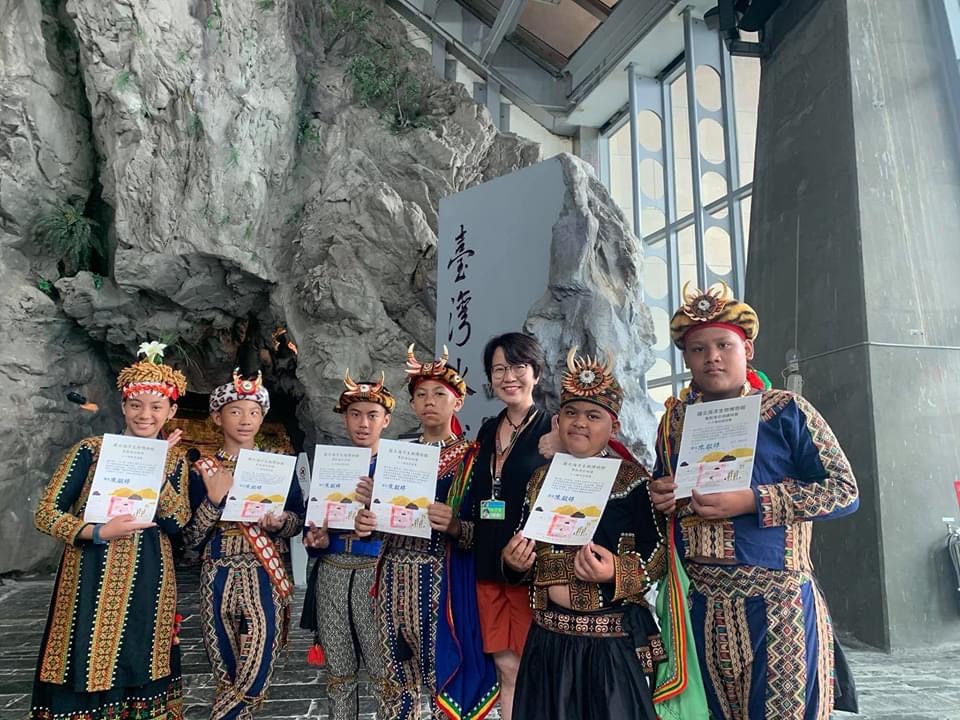
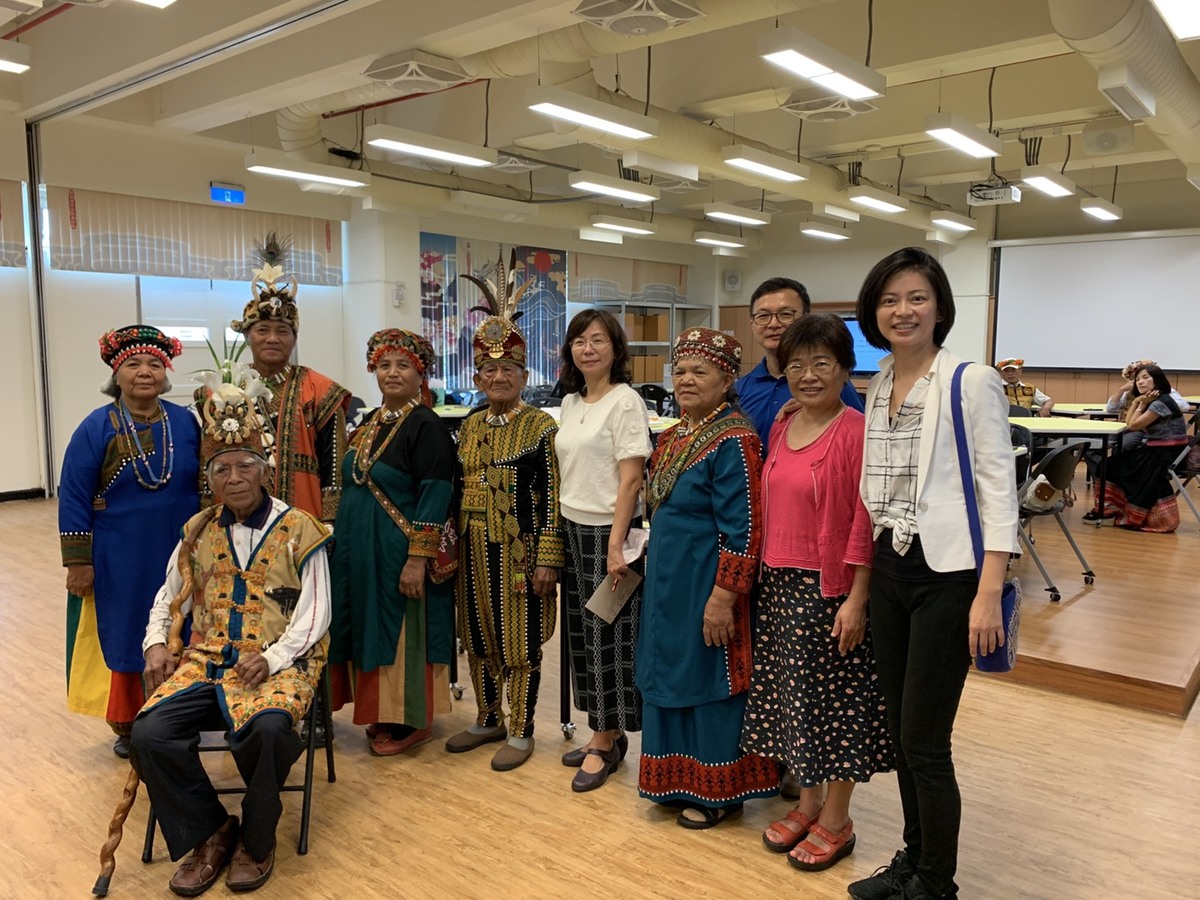
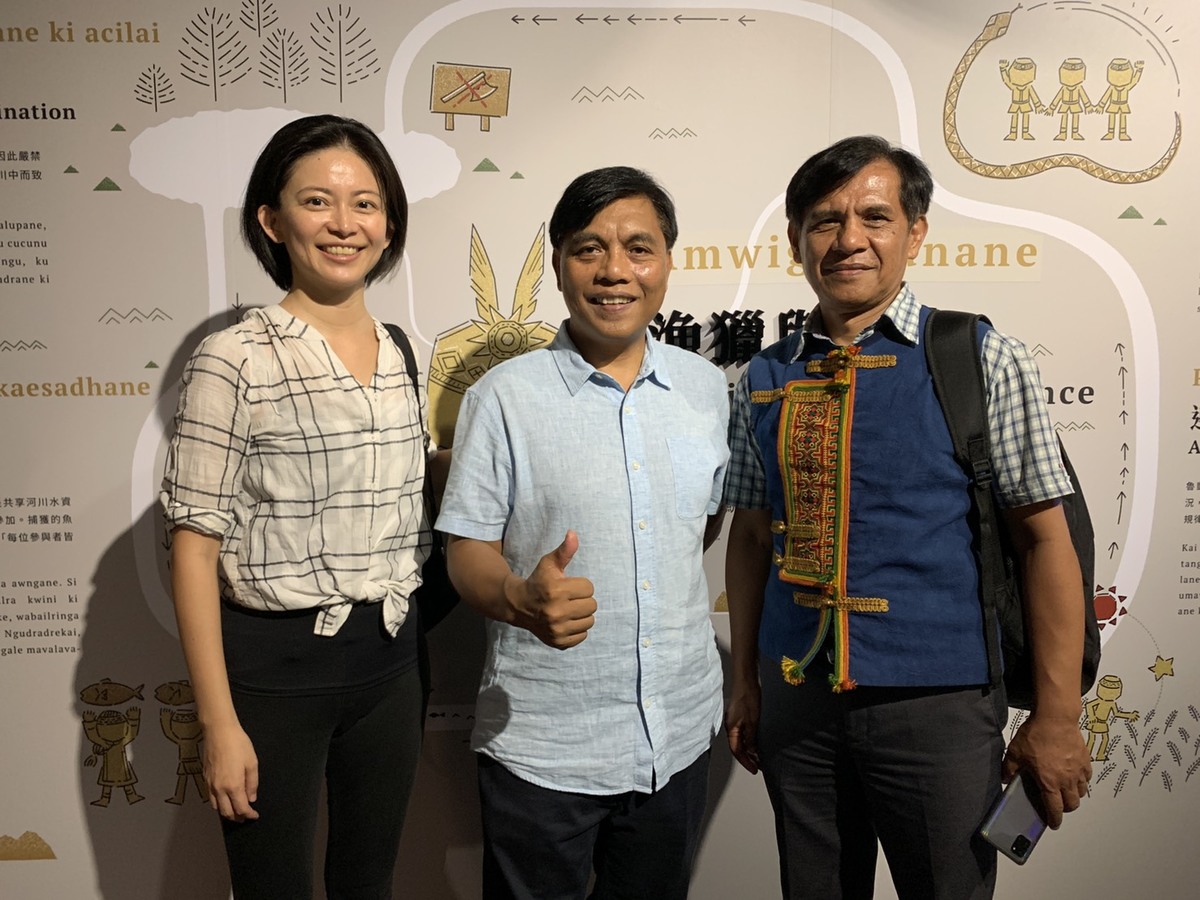
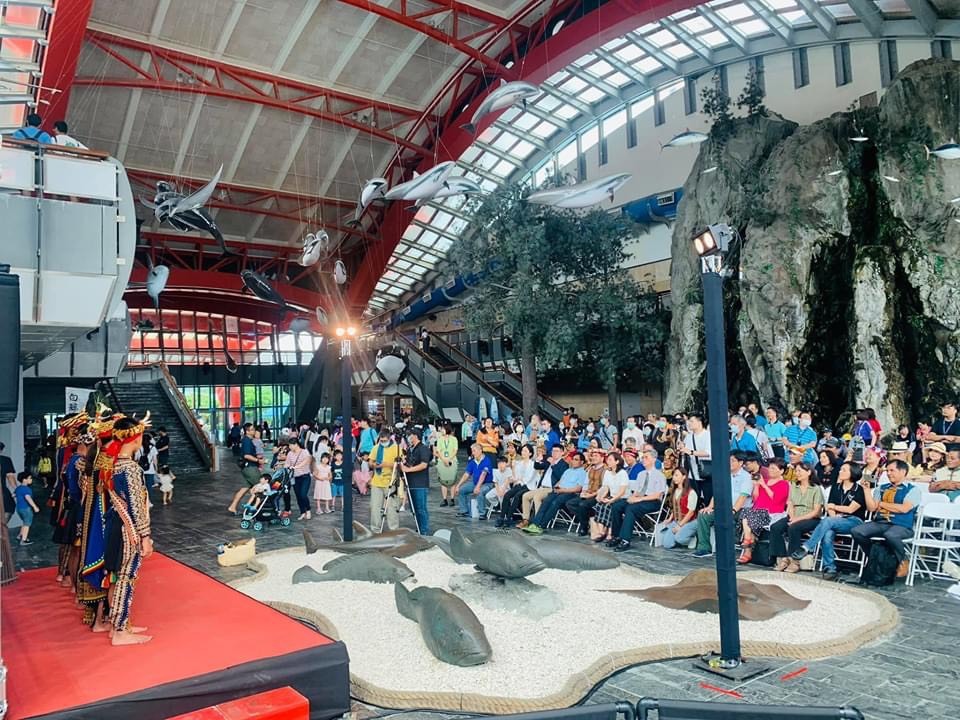
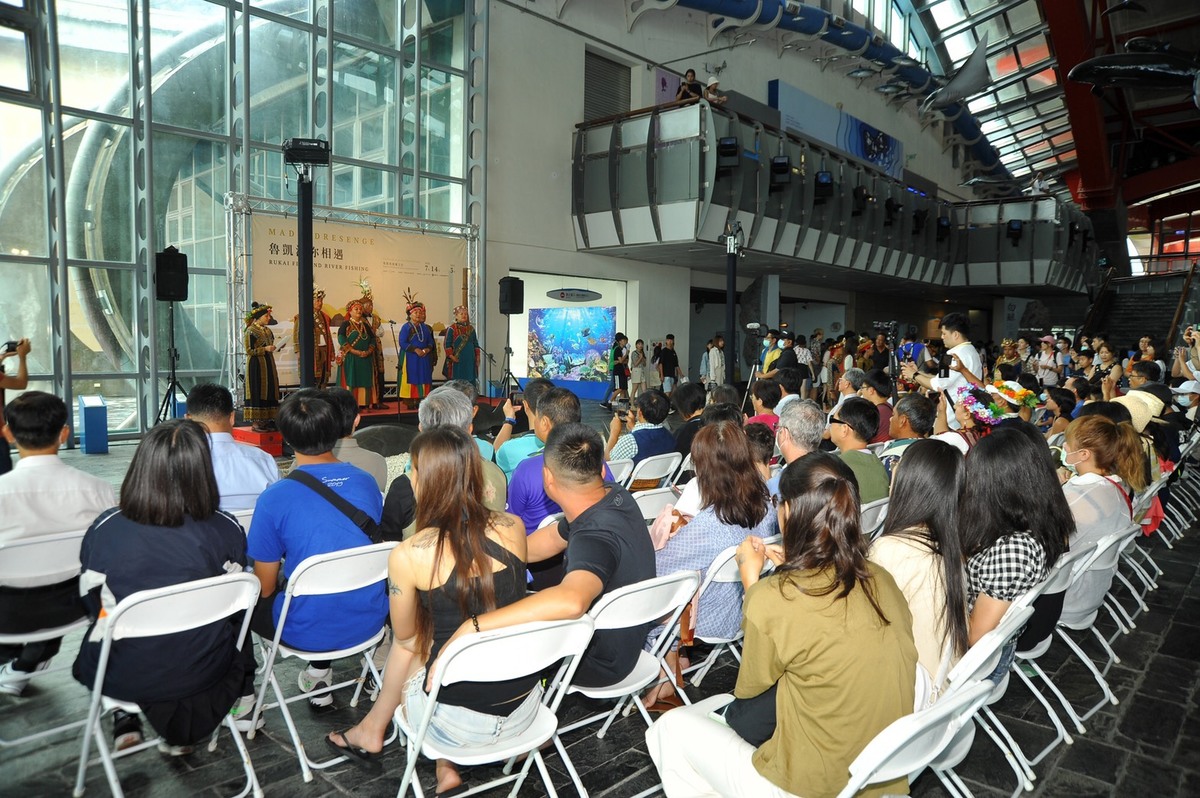
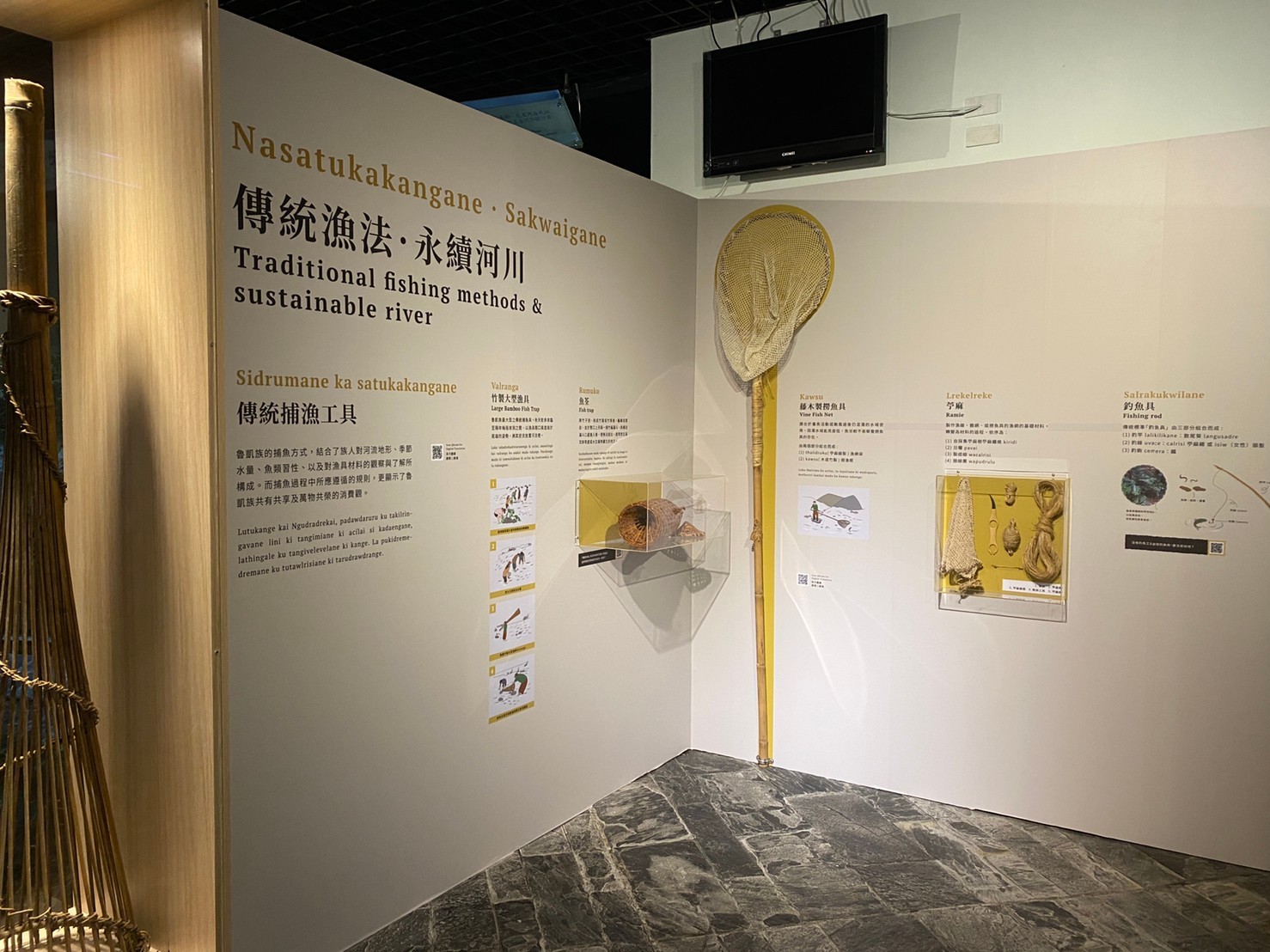
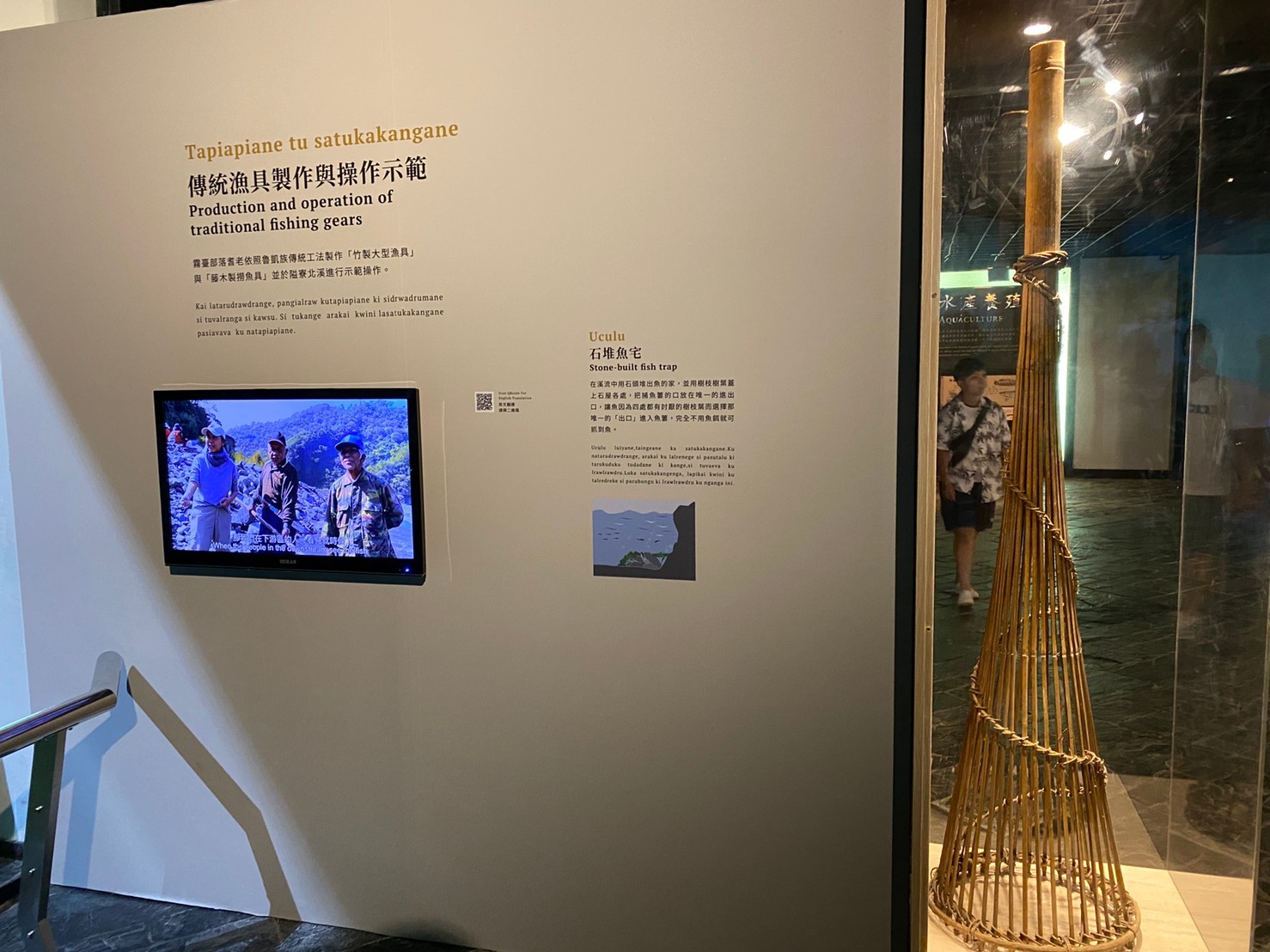
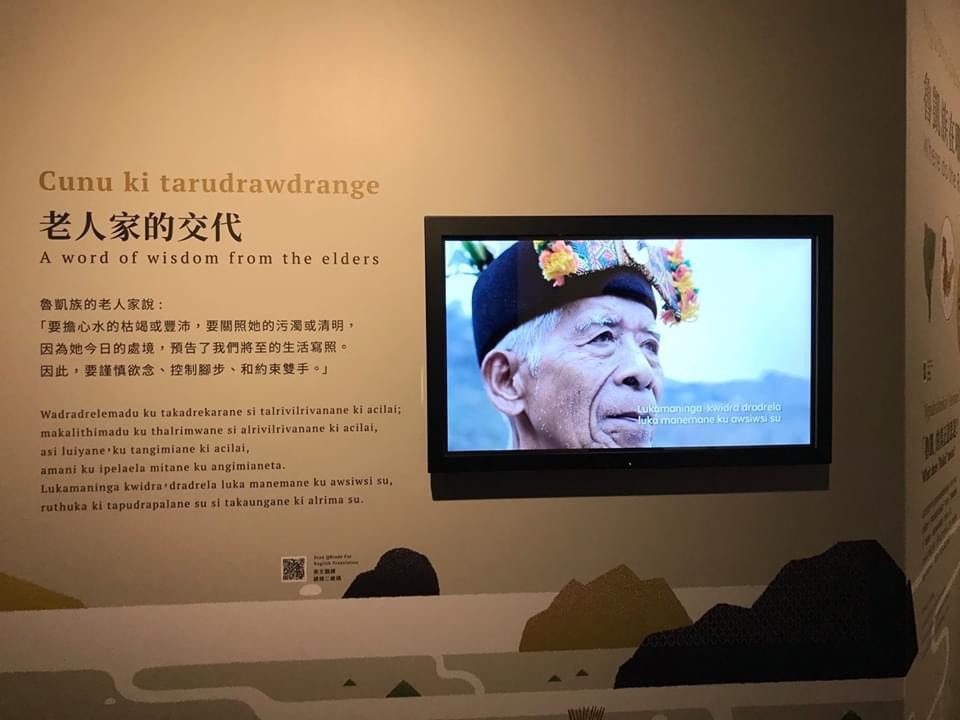
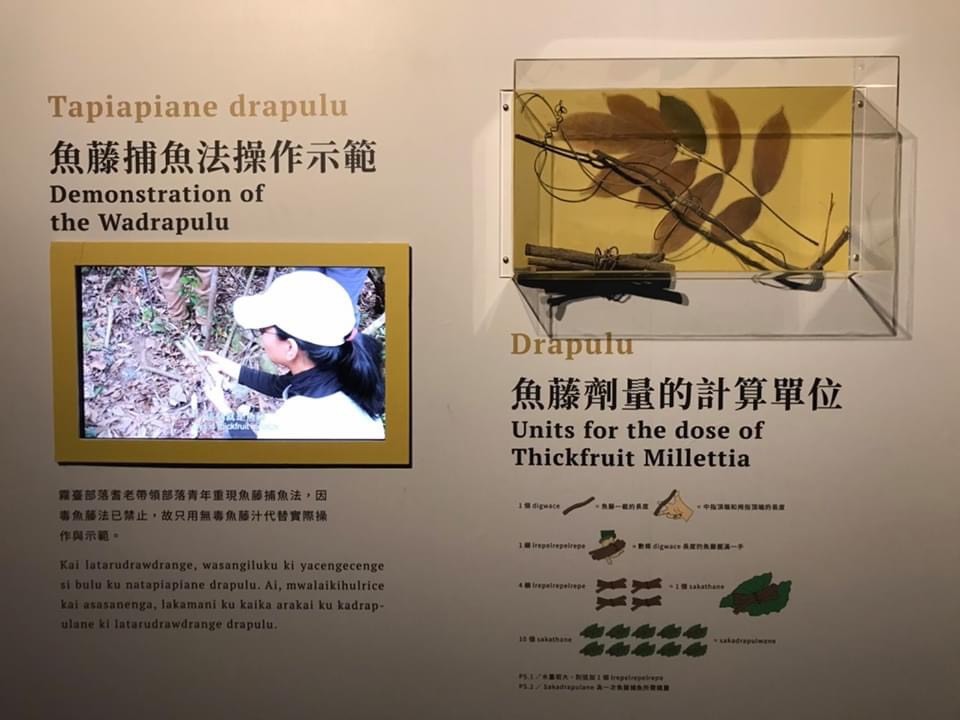
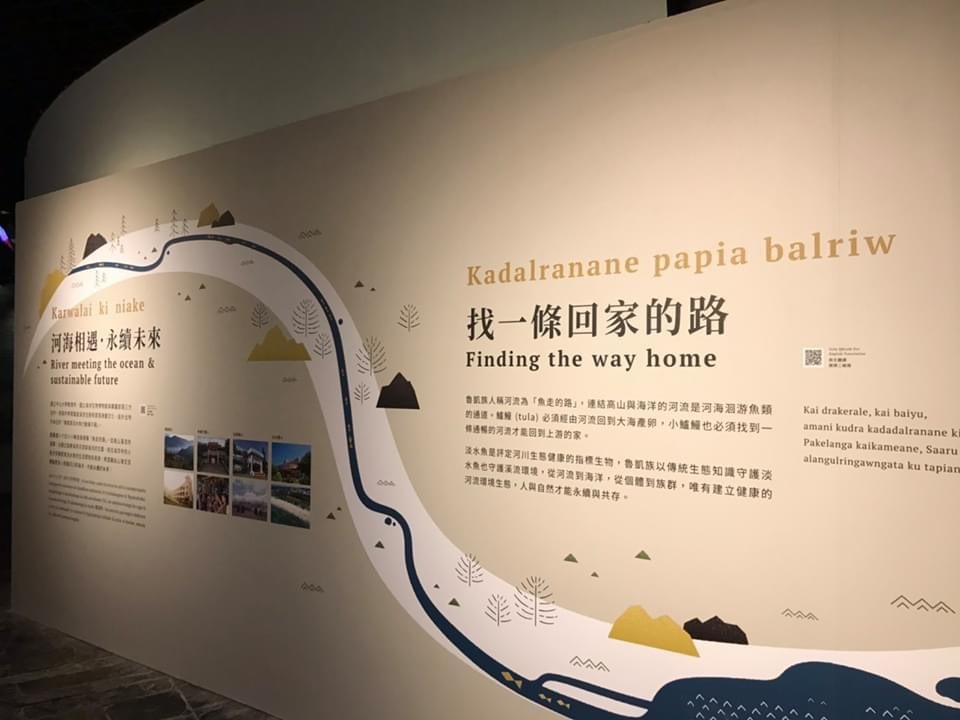
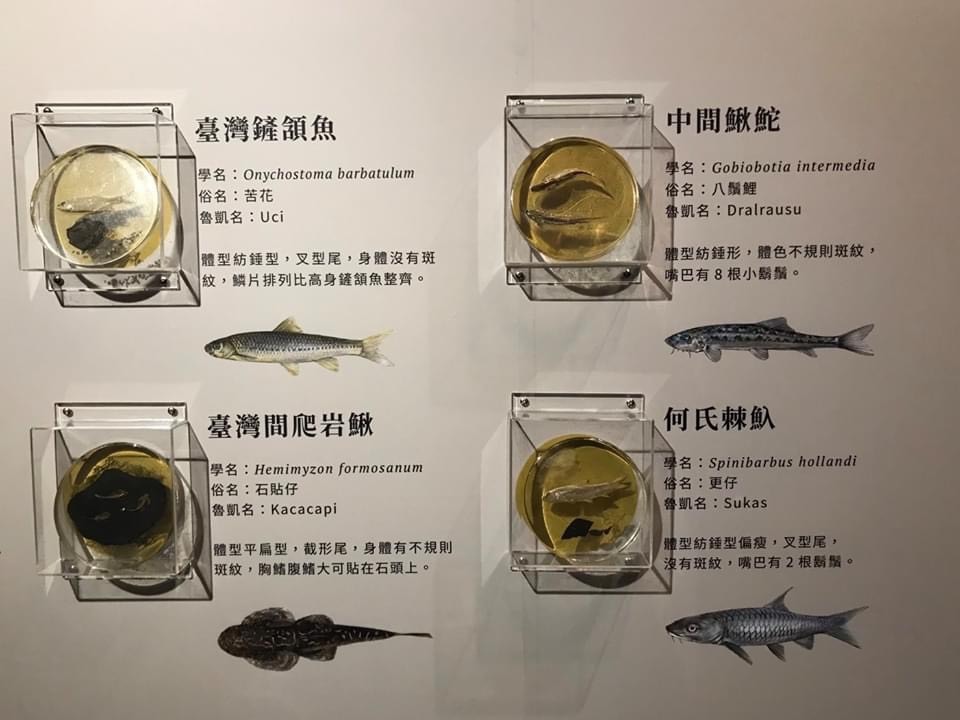
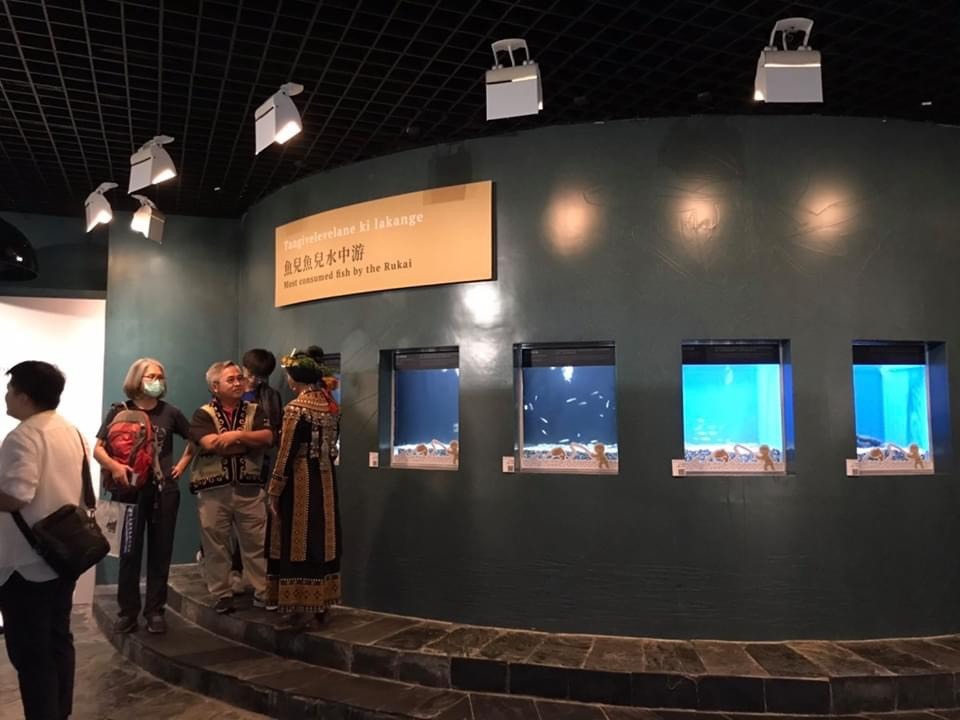
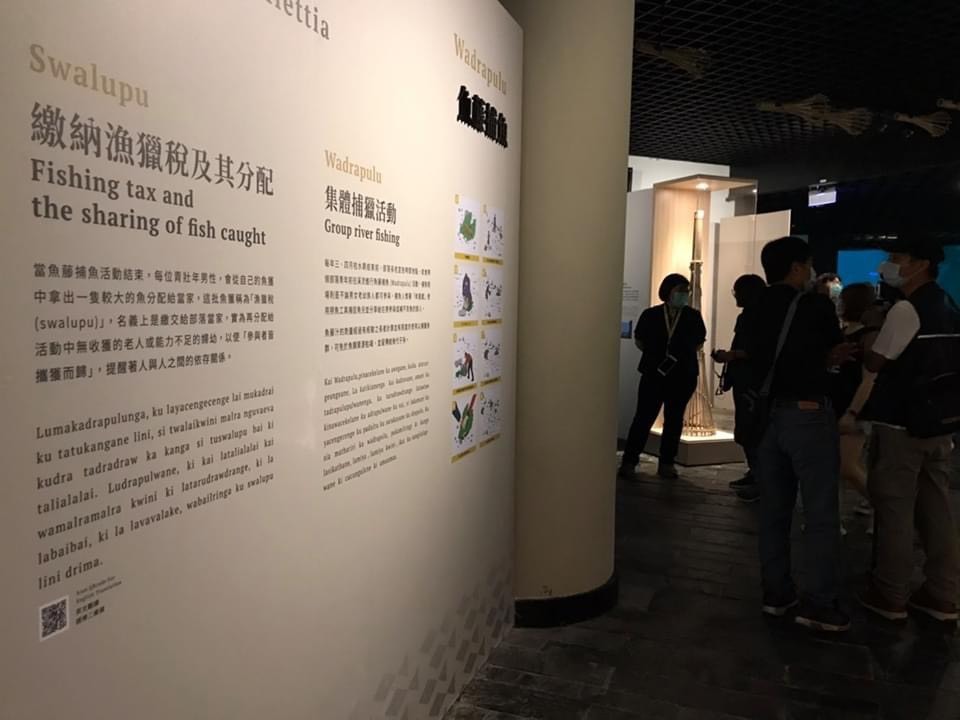
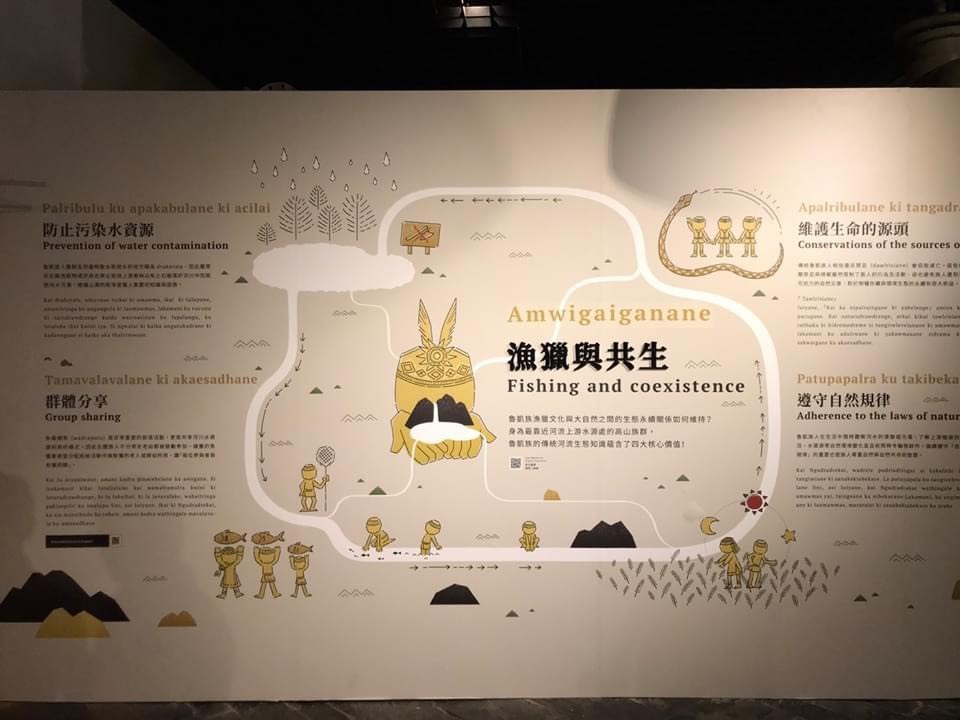
The Institute of Education, the Center for Austronesia Social and Cultural Development, and the Department of Oceanography at National Sun Yat-sen University (NSYSU) collaborated with Rukai Cultural Museum in Wutai Township, Wutai Elementary School, and National Museum of Marine Biology and Aquarium (NMMBA), to organize a special exhibition called “Rukai Fish and River Fishery” at the NMMBA from July 2020 to March 2021. The exhibition presents traditional fishing knowledge of the Rukai indigenous community, their local freshwater fish species, and wisdom of sustainability.
During the opening ceremony, the Rukai elders performed a traditional song, blessed the exhibition with prayers, and expressed their gratitude in the Rukai language. The students of the Wutai Elementary School also narrated a story about the impact of climate change on freshwater fish. Sasala Taiban, Director of the Center for Austronesia Social and Cultural Development at NSYSU, said that the Rukai people have relocated from the high mountainous areas to the lowlands and that this exhibition is a way to promote their ecological knowledge and remind the society about the impacts of climate change on humanity and ethnic culture.
The exhibition is located on the first floor of the Waters of Taiwan pavilion of the NMMBA; by the entrance, there is an installation of a large traditional fishing trap. By presenting traditional fishing tools and methods, the exhibition introduces the fishing culture of the Rukai people. Three videos present traditional fishing tools and methods to explain how the Rukai people make use of the surrounding nature while maintaining a harmonious relationship with nature.
The exhibition area starts with a presentation of elders’ wisdom on environmental sustainability that states, “We must be concerned with the scarcity or abundance of water and pay attention to her clarity and turbidity. Because her condition today foretells our future. Therefore, we must carefully control our desire, footsteps, and hands”. Cheng-Chi Tu, Mayor of the Wutai Township, pointed to the words in the Rukai language “Twakange luiya Kai Ngudradrekai” on an exhibition wall and said that the use of Rukai language throughout the exhibition is an expression of respect for the Rukai community and the NMMBA’s precedent collaboration with an indigenous group that opens a new page in the history of cultural diversity.
Hsueh-Hua Chuang, Director of the Institute of Education at NSYSU, stated that the exhibition addresses the issues of the environment, ocean, multiculturalism, and indigenous education emphasized by the Curriculum Guidelines of 12-year Basic Education by Ministry of Education. The exhibition was designed in a cross-disciplinary way, showcasing the traditional Rukai knowledge in science, technology, engineering, arts, and mathematics (STEAM).
Since 2017, Paichi Pat Shein, Professor from Institute of Education at NSYSU, has been collaborating with the teachers and administrators of Wutai Elementary School, Rukai elders, and researchers of the Rukai Cultural Museum, with the support of the Taiwan Indigenous Science Education Research Office, Ministry of Science and Technology. Lin-Chien Tung, a master student from Professor Shein’s research team trained the upper elementary students of Wutai Elementary School for the narration of a mobile exhibit, and took them on a tour along the Ai-Liao River from the upper stream to the outlying island, to visit four elementary schools to teach about the importance of healthy and clean rivers for ocean sustainability. Professor Shein hopes that the exhibition will raise public awareness about the significance of the conservation of rivers and oceans for a sustainable future. The “Rukai Fish and River Fishery” exhibition at the NMMBA is its first exhibition that takes on a humanistic perspective on the natural ecosystem. Everybody is welcome to visit the NMMBA for a learning experience of culture and nature.
During the opening ceremony, the Rukai elders performed a traditional song, blessed the exhibition with prayers, and expressed their gratitude in the Rukai language. The students of the Wutai Elementary School also narrated a story about the impact of climate change on freshwater fish. Sasala Taiban, Director of the Center for Austronesia Social and Cultural Development at NSYSU, said that the Rukai people have relocated from the high mountainous areas to the lowlands and that this exhibition is a way to promote their ecological knowledge and remind the society about the impacts of climate change on humanity and ethnic culture.
The exhibition is located on the first floor of the Waters of Taiwan pavilion of the NMMBA; by the entrance, there is an installation of a large traditional fishing trap. By presenting traditional fishing tools and methods, the exhibition introduces the fishing culture of the Rukai people. Three videos present traditional fishing tools and methods to explain how the Rukai people make use of the surrounding nature while maintaining a harmonious relationship with nature.
The exhibition area starts with a presentation of elders’ wisdom on environmental sustainability that states, “We must be concerned with the scarcity or abundance of water and pay attention to her clarity and turbidity. Because her condition today foretells our future. Therefore, we must carefully control our desire, footsteps, and hands”. Cheng-Chi Tu, Mayor of the Wutai Township, pointed to the words in the Rukai language “Twakange luiya Kai Ngudradrekai” on an exhibition wall and said that the use of Rukai language throughout the exhibition is an expression of respect for the Rukai community and the NMMBA’s precedent collaboration with an indigenous group that opens a new page in the history of cultural diversity.
Hsueh-Hua Chuang, Director of the Institute of Education at NSYSU, stated that the exhibition addresses the issues of the environment, ocean, multiculturalism, and indigenous education emphasized by the Curriculum Guidelines of 12-year Basic Education by Ministry of Education. The exhibition was designed in a cross-disciplinary way, showcasing the traditional Rukai knowledge in science, technology, engineering, arts, and mathematics (STEAM).
Since 2017, Paichi Pat Shein, Professor from Institute of Education at NSYSU, has been collaborating with the teachers and administrators of Wutai Elementary School, Rukai elders, and researchers of the Rukai Cultural Museum, with the support of the Taiwan Indigenous Science Education Research Office, Ministry of Science and Technology. Lin-Chien Tung, a master student from Professor Shein’s research team trained the upper elementary students of Wutai Elementary School for the narration of a mobile exhibit, and took them on a tour along the Ai-Liao River from the upper stream to the outlying island, to visit four elementary schools to teach about the importance of healthy and clean rivers for ocean sustainability. Professor Shein hopes that the exhibition will raise public awareness about the significance of the conservation of rivers and oceans for a sustainable future. The “Rukai Fish and River Fishery” exhibition at the NMMBA is its first exhibition that takes on a humanistic perspective on the natural ecosystem. Everybody is welcome to visit the NMMBA for a learning experience of culture and nature.
Click Num:
Share
